If someone asked you to picture a “transformational” festival, what comes to mind?
Chances are that, if you’ve heard this term before, your mind’s eye might muster up something like this: A crowd full of body paint-clad people dancing, doing yoga, and camping out in the desert–or perhaps a forest or a jungle.
Afro/Indigenous rhythm-infused electronic music pulses through an open-air dancefloor surrounded by abstract art sculptures, and pockets of people crowd around a fire spinner as the scent of incense and Palo Santo mixes with other “recreationals” wafting through the breeze.
As someone who has not been to one of these self-proclaimed recreational festivals in person, the picture comes together with striking ease.
From Texas Eclipse to Envision Costa Rica, Lightning In a Bottle in California to Burning Man itself, the number of festivals bearing the “transformational” label seems to grow each year, and they all seem to be selling the same kinds of images.
But is there any real definition to this buzzy label? What actually is a transformational festival? What sets these events apart, and what’s behind their growing appeal?
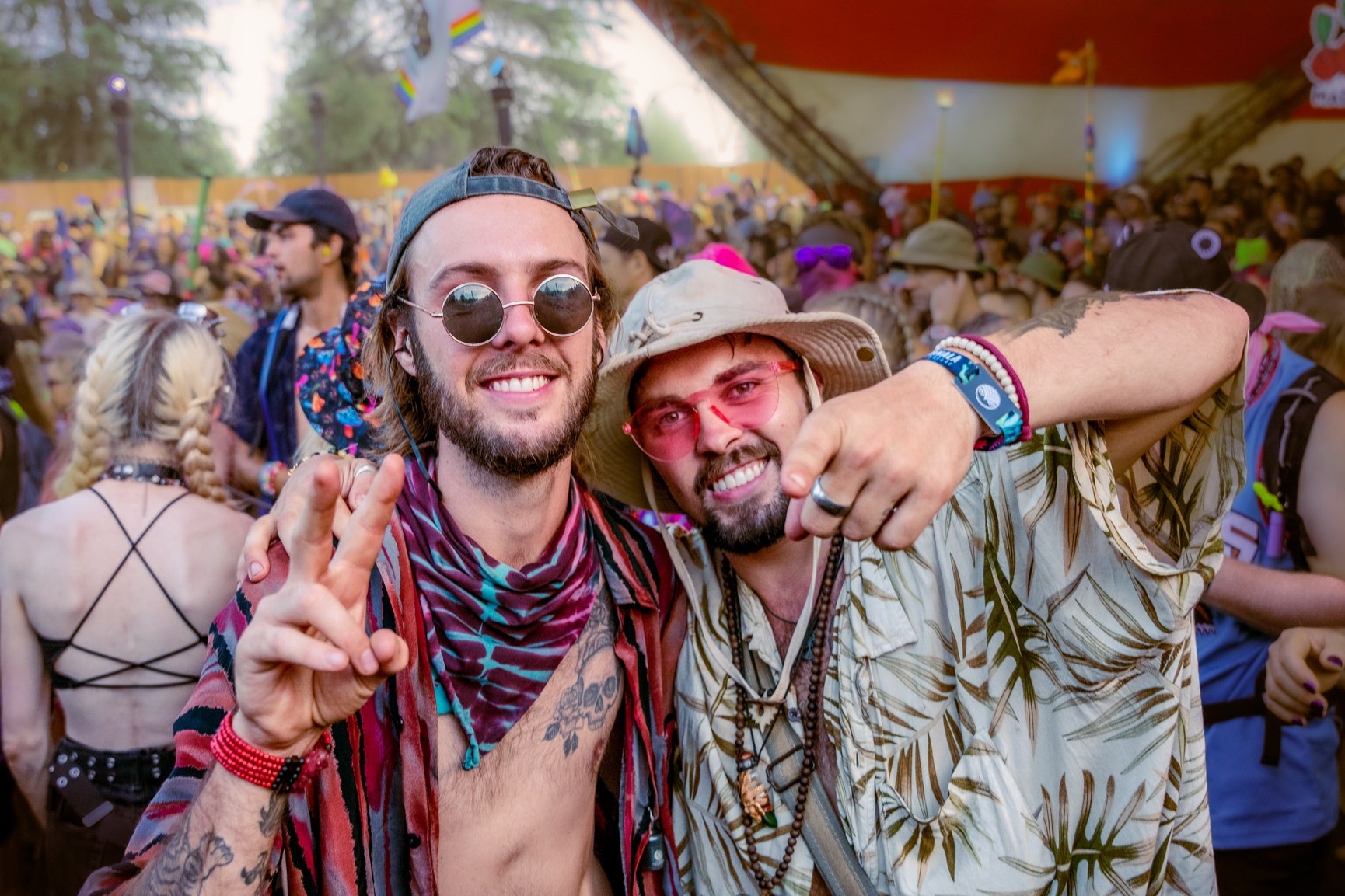
On the surface, it’s hard to pin down transformational festivals. After all, any kind of experience that somehow alters a person’s life perspective in an impactful way can be transformational–the context and setting in which a person experiences this is highly subjective.
A festival using the terms “transformational” or “transformative” in its description doesn’t guarantee that you’ll have a transformative experience there.
Vice versa, plenty of people have deep life-altering hedonic experiences at “regular old” music festivals.
Even so, transformational festivals share common principles and features that set them apart from the party scene. According to seasoned transformational festival participants, it all starts with the practice of intention-setting.
Lynx, a North Carolina-based Burning Man regular, explains that transformational festivals aim to create a space where people can find growth, and the process begins before anyone sets foot on the festival grounds.
That’s where intention-setting comes in: “I think there’s more intentionality there, as opposed to a fest like EDC, for example, where it’s all about partying just to party. With transformative events, there is an intentionality of bringing together a community looking for that deeper experience.”
He continues, “There are often classes and workshops like yoga, men’s and women’s groups, and workshops to help some folks get into that transformative range where they can open up. And again, I think any event can be transformative in that way, but [transformative festivals] are spaces dedicated to helping people soften into the experience.”
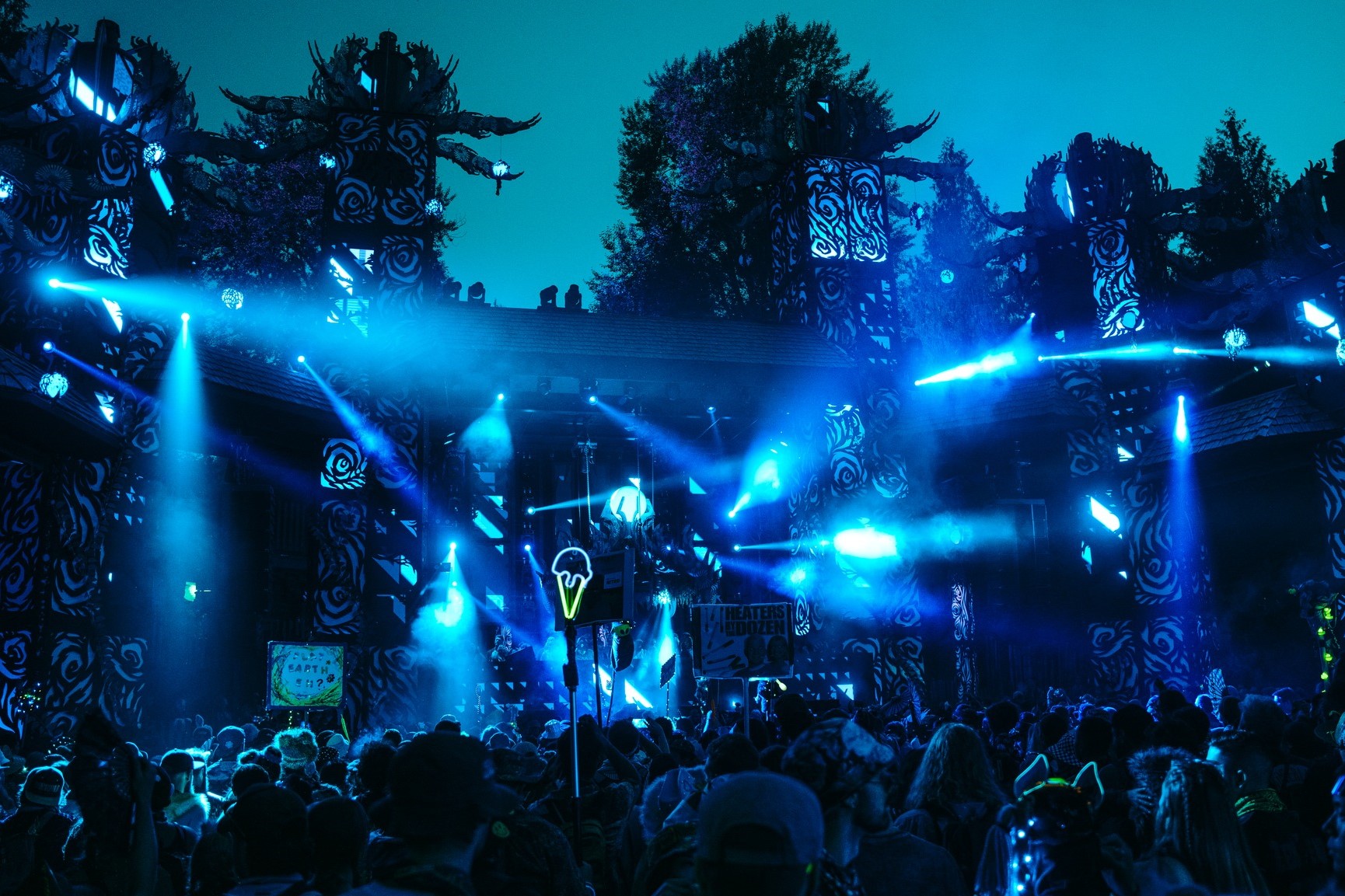
Whether it’s personal development, connecting with the community, healing an inner wound, or getting in touch with one’s creativity, intention-setting is a key piece of transformative festival culture. Intention-setting can be a beneficial practice for any kind of festival–In fact, it’s something I do regularly.
But as Lynx points out, transformative festivals take things to a deeper level by dedicating generous space, time, and resources to creating an environment where people can explore deeper aspects of themselves.
According to Lynx, a lot of focus falls on spirituality, self-acceptance, and finding meaning in life: ”As far as what people are looking for, what comes to mind is honestly like Ayahuasca trip-level things…they’re looking to find God if you know what I mean. I have a couple of friends who are really into the transformational festival scene and from what I see, going for the community is a big draw, and then there’s the looking to attain a higher level of consciousness or higher vibration if you will.”
It’s important to note that, while spirituality is a common theme at transformational festivals, not everyone comes to these spaces for spiritual reasons. Participating in transformative festivals does not require holding religious beliefs, and having a fulfilling experience doesn’t require spirituality.
Many transformative festivals focus on down-to-earth, enriching activities like reflective journaling, art, team-building, games, and, of course, connecting through music. The bigger idea is that rather than just throwing a party, transformational festivals aim to create a space that helps people fill their cups.
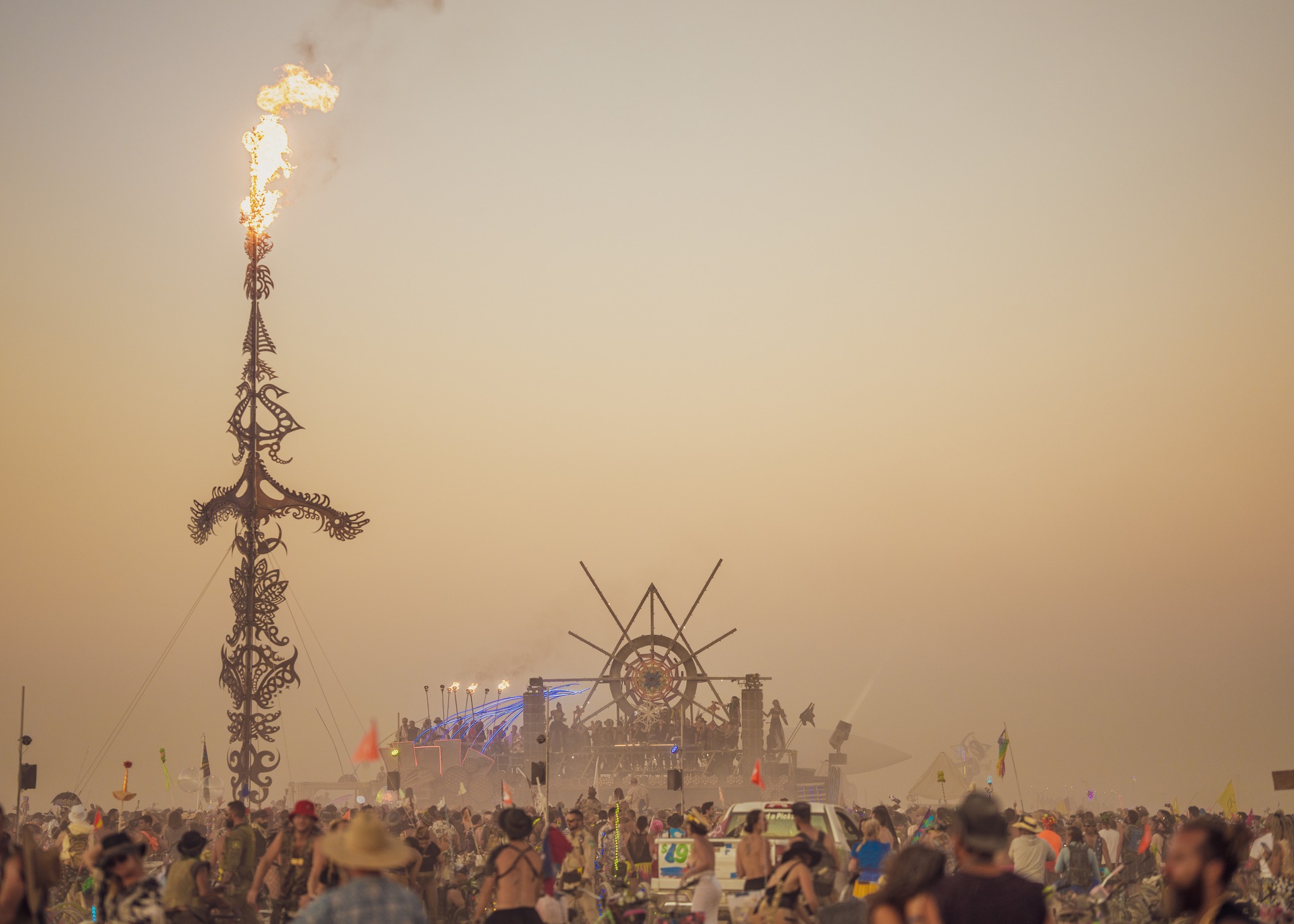
For many people, transformational festivals are also spaces where they can temporarily step into a radically different way of life and split from the hyper-capitalistic ways of modern society. Organizers swap out corporate sponsors for small businesses, volunteers, and bartering systems.
Different festivals embrace these practices to varying degrees–Burning Man, for example, claims the far end of the spectrum by doing away with cash transactions altogether, besides the initial ticket purchase.
One of the major appeals of transformational festivals is ultimately that they offer people ways to attend without plundering their bank accounts.
What’s more, a grassroots approach to organizing allows attendees to feel like they’re participating in the show rather than just spectating, and organizers have more free reign to get creative and push boundaries with their productions.
“There’s more participation in the magic itself,” explains Lynx. “Like at EDC you’re going to see this act, right? At a Burn, two people with an inflatable swimming pool can decide that they’re an act. So they’ll post up somewhere and they can create an experience that people can come through and participate in.”

At Burning Man, Lynx and his cohorts run the interactive “Strung Cheese” installation where participants can experiment with shibari while enjoying hot off-the-grill quesadillas and grilled cheese.
In all its eyebrow-raising peculiarity, Strung Cheese is just the tip of the iceberg for weird and wild DIY acts found at events like Burning Man. This boundary-pushing participant-led experience is just what people are looking for in an era of copy-paste corporate productions.
It’s important to note that, while an anti-corporate culture may sound appealing, a major event always comes with costs. When there are no major sponsors involved, organizers have to pull from their own resources and raise funds outside the festival to get the supplies they need.
This can be very costly and labor-intensive. Nonetheless, those who take on such demands understand the nature of the game and they take on the responsibility by choice.
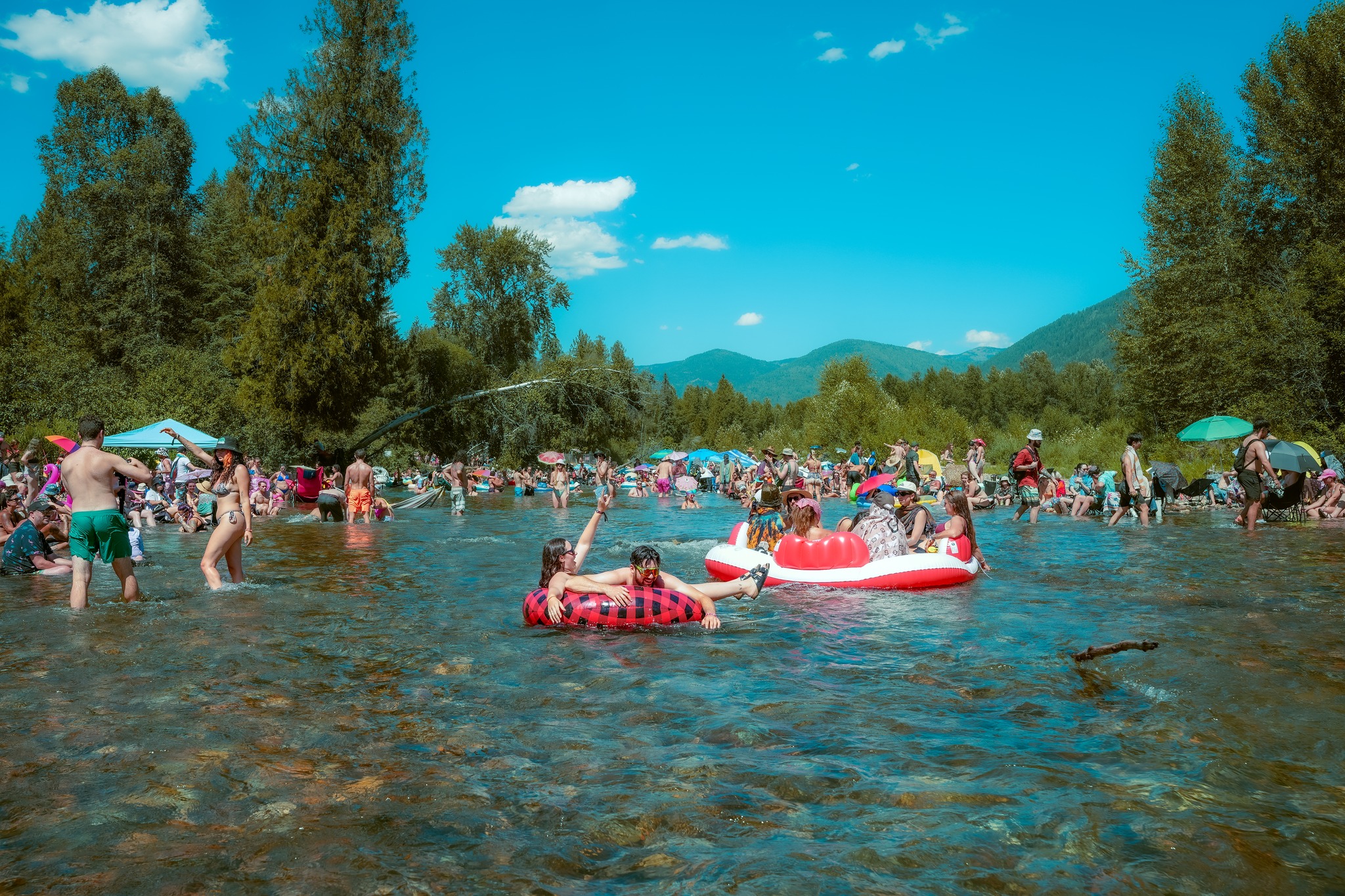
Building an intimately curated festival from the ground up requires massive community cooperation and dedication. It’s, therefore, not surprising that transformational festival circles feature tight-knit communities complete with their own unique subcultures.
To their dedicated participants, transformative festivals represent a lifestyle. In the iconic case of Burning Man, for example, this is expressed through a system of values, otherwise known as “The 10 Principles,” which include practices like “leave no trace” and gift-giving.
Many other transformative events have adopted similar practices, and even for-profit events often direct a portion of proceeds from sales toward charities and fundraisers. This attention to principles and community practices is another feature that distinguishes transformational festivals from more entertainment-focused mainstream events.
That’s not to say that there aren’t plenty of social circles in the mainstream that practice the same ideals. But whereas at corporate festivals such circles might represent a portion of the masses, people expect this to be the norm when it comes to transformative festivals.
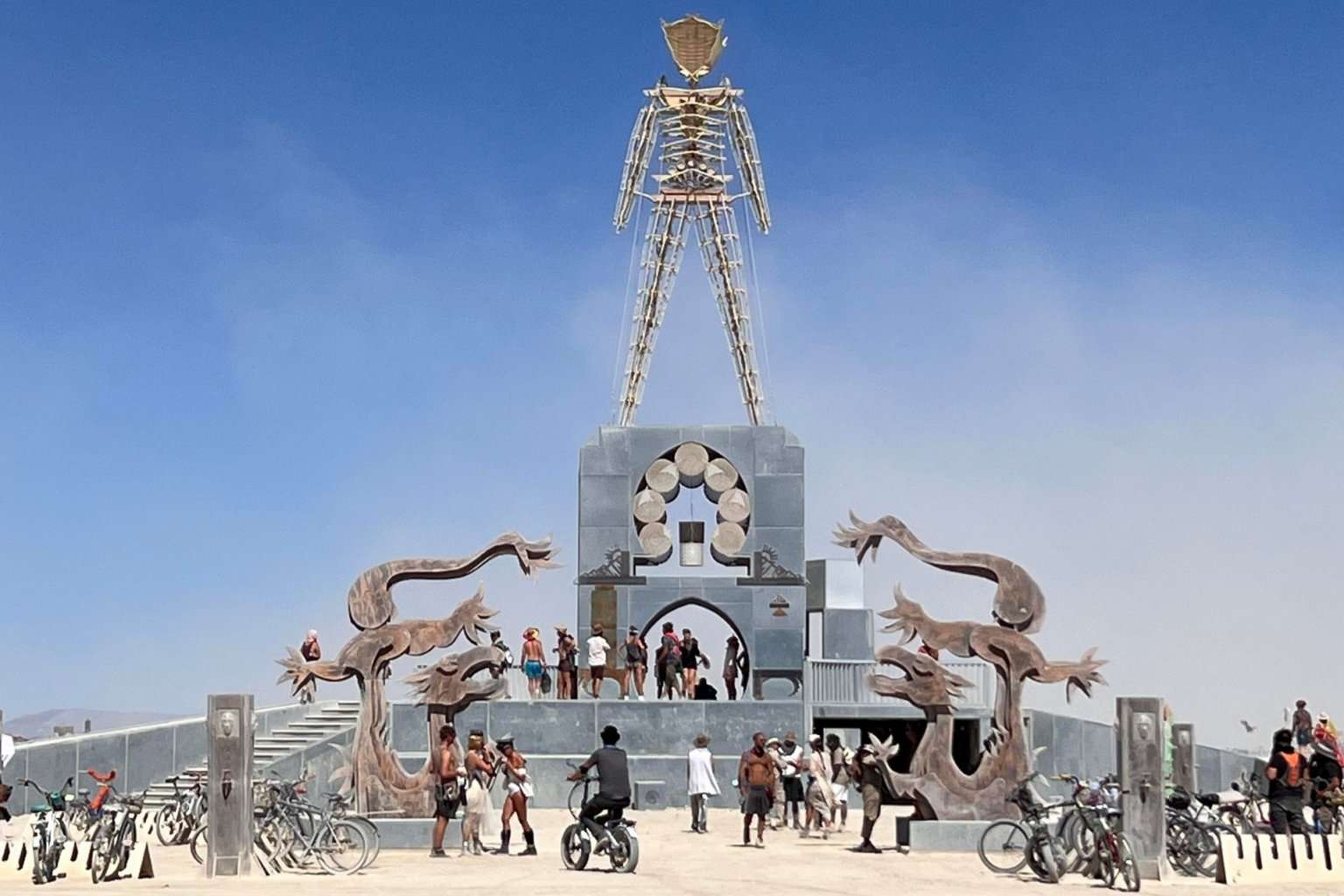
So what makes a transformational festival different? As festival culture evolves, the lines between what’s considered “mainstream” and “transformative” blur. As much as we may have preconstructed tye-dye-colored images of what a transformational festival looks like, the truth is that both cultures increasingly influence and bleed into each other.
That said, transformational festivals offer a key distinction that sets them apart. Through intention-setting, community participation practices, and creating spaces for people to access mind-opening experiences, transformational festivals aim to turn the party into something more wholesome.
Feature Image courtesy of Brad Bingham







